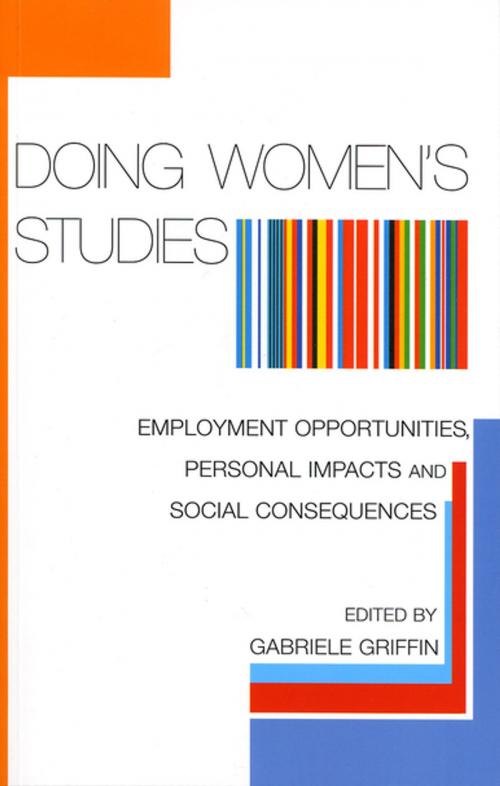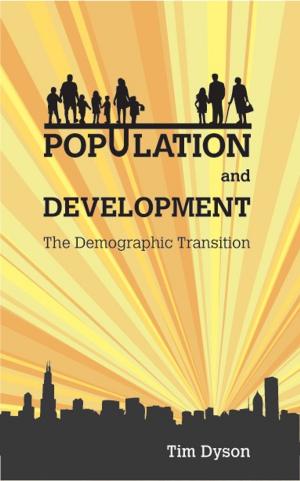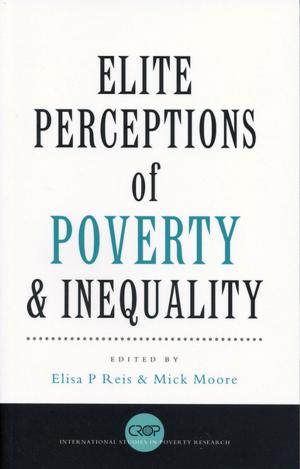Doing Women's Studies
Employment Opportunities, Personal Impacts and Social Consequences
Business & Finance, Career Planning & Job Hunting, Labor, Nonfiction, Social & Cultural Studies, Social Science, Gender Studies, Women&| Author: | ISBN: | 9781848136519 | |
| Publisher: | Zed Books | Publication: | July 4, 2013 |
| Imprint: | Zed Books | Language: | English |
| Author: | |
| ISBN: | 9781848136519 |
| Publisher: | Zed Books |
| Publication: | July 4, 2013 |
| Imprint: | Zed Books |
| Language: | English |
With the expansion of the EU in 2004 and its inclusion now of 25 European countries, the movement of workers across the Continent will affect the employment opportunities of women. But as this up-to-date investigation across nine countries shows, there remain significant differences amongst specific European countries regarding women's education and employment opportunities. Taking 1945 as its historical starting point, this sociological study, based on some 900 questionnaire responses and more than 300 in-depth interviews, explores the complex inter-relationship between women's employment, the institutionalization of equal opportunities, and Women's Studies training. This volume is the first to explore what happens to women who have undertaken Women's Studies training in the labour market. Factors influencing their actual employment experiences include employment opportunities for women in each country, their expectations of the labour market and gender norms informing those expectations, how far equal opportunities are actually enforced and the strength of local women's movements. Doing Women's Studies provides unique information about, and insightful analyses of, the changing patterns of women's employment in Europe; equal opportunities in a cross-European perspective; educational migration; gender, race, ethnicity and nationality; and the uneven prevalence and impact of Women's Studies on the lifestyles and everyday practices of those women who have experienced it. The contributors are prominent feminist researchers from nine European countries. Their findings will be of interest to sociologists and gender studies experts working in the areas of gender, employment, equal opportunities and the impact of education on employment.
With the expansion of the EU in 2004 and its inclusion now of 25 European countries, the movement of workers across the Continent will affect the employment opportunities of women. But as this up-to-date investigation across nine countries shows, there remain significant differences amongst specific European countries regarding women's education and employment opportunities. Taking 1945 as its historical starting point, this sociological study, based on some 900 questionnaire responses and more than 300 in-depth interviews, explores the complex inter-relationship between women's employment, the institutionalization of equal opportunities, and Women's Studies training. This volume is the first to explore what happens to women who have undertaken Women's Studies training in the labour market. Factors influencing their actual employment experiences include employment opportunities for women in each country, their expectations of the labour market and gender norms informing those expectations, how far equal opportunities are actually enforced and the strength of local women's movements. Doing Women's Studies provides unique information about, and insightful analyses of, the changing patterns of women's employment in Europe; equal opportunities in a cross-European perspective; educational migration; gender, race, ethnicity and nationality; and the uneven prevalence and impact of Women's Studies on the lifestyles and everyday practices of those women who have experienced it. The contributors are prominent feminist researchers from nine European countries. Their findings will be of interest to sociologists and gender studies experts working in the areas of gender, employment, equal opportunities and the impact of education on employment.















